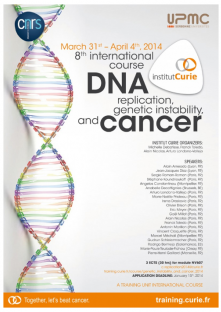A call for PhD and Master's grants for MDs, PharmDs & other healthcare professionals is now open. The applications deadline is May 31, 2024.
Training at Institut Curie
Latest news
-
04/15/2024PhD and M2 scholarships for physicians, pharmacists and other healthcare professionals
-
02/27/2024[Job Offer] PhD Program Manager | Institut Curie
Institut Curie is recruiting a PhD Program Manager. Position based in Paris, 5th arrondissement.

